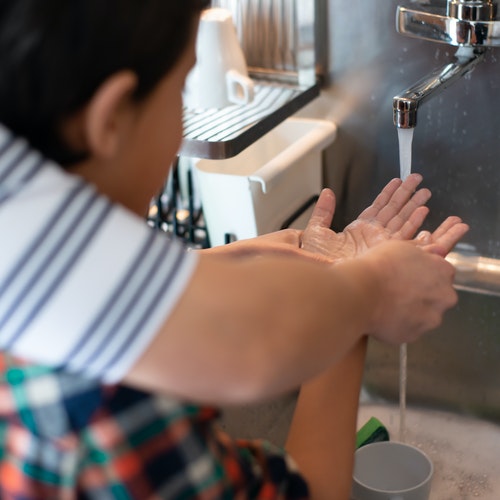
Raising healthy children is one of the most important things that you can do as a parent. It is important to start teaching them healthy habits early on in life so that they will continue to practice them as they get older.
In this blog post, you will explore eight healthy habits that you can teach your children. These habits will help them stay healthy and happy throughout their lives.
1. Eat a healthy diet.
You can start teaching your children about healthy eating habits by modeling good nutrition yourself. Lead by example and make sure to include plenty of fruits, vegetables, and whole grains in your own diet.
It is also important to limit sugary drinks and snacks, as well as fatty foods. Help your children to make healthy choices by packing their lunch for school with nutritious foods, and making sure that there are plenty of healthy snacks available at home.
2. Get plenty of exercise.
Exercise is important for both physical and mental health. You can help your children to get the exercise they need by making it a family activity. Go for walks or bike rides together, play catch in the backyard, or join a local sports team. It is also important to limit sedentary activities, such as watching television or playing video games. Encourage your children to be active every day!
3. Get enough sleep.
Sleep is essential for good health. Children need between eight and twelve hours of sleep every night. You can help your children to get the sleep they need by establishing a bedtime routine and making sure that their bedroom is dark and quiet. Avoid letting your children use electronic devices in the hours leading up to bedtime, as the light from these devices can interfere with sleep.
4. Prioritize health education.
Many people believe that children should be protected from the realities of human anatomy, including the function of bodily systems and the dangers of certain health risks. However, there are several good reasons why children should be taught about human anatomy.
First, knowledge is power. The more children know about their bodies, the better equipped they will be to make informed decisions about their health. And you can use age-appropriate resources when teaching children about the human body. Activity books and workbooks that discuss human anatomy for kids are good resources to use.
Second, early education can help to prevent dangerous health risks. For example, children who learn about the dangers of smoking are much less likely to take up the habit themselves.
Finally, teaching children about human anatomy can help to foster a lifetime of healthy habits. By understanding how their bodies work, children can develop respect for their own health and wellbeing. As a result, they are more likely to make choices that will lead to a long and healthy life.
5. Manage stress.
Stress can have a negative impact on both physical and mental health. You can help your children to manage stress by teaching them healthy coping mechanisms. Help them to identify when they are feeling stressed, and encourage them to take breaks, relax, and exercise. It is also important to teach them how to identify and avoid unhealthy coping mechanisms, such as using drugs or alcohol.
6. Avoid tobacco and other drugs.
Tobacco and other drugs are harmful to both physical and mental health. You can help your children to avoid these substances by educating them about the risks involved. Explain why it is important to stay away from drugs and tobacco and provide resources for them to turn to if they feel tempted to use these substances.
7. Wash hands regularly.
It is important to teach your children to wash their hands for several reasons. First, hand-washing is an effective way to prevent the spread of illness. By teaching your children to wash their hands regularly, you can help them avoid getting sick and spreading germs to others.
Second, hand-washing can also help to prevent the spread of foodborne illnesses. If you teach your children to wash their hands after handling raw food, they will be less likely to contaminate cooked food with bacteria.
Finally, hand-washing is a simple and inexpensive way to protect yourself and your family from the harmful effects of dirt and debris. By teaching your children proper hand-washing techniques, you can help them stay healthy and safe.
8. Be kind to others.
Teaching your children to be kind and respectful of others is one of the most important things that you can do. Help them to understand the importance of treating others with respect, and showing compassion and empathy. Encourage them to volunteer in their community, and participate in activities that promote social responsibility.
In Summary
By teaching your children these eight healthy habits, you can help them stay happy and healthy. Encourage your child to adopt these habits so that they can live healthier lives.


